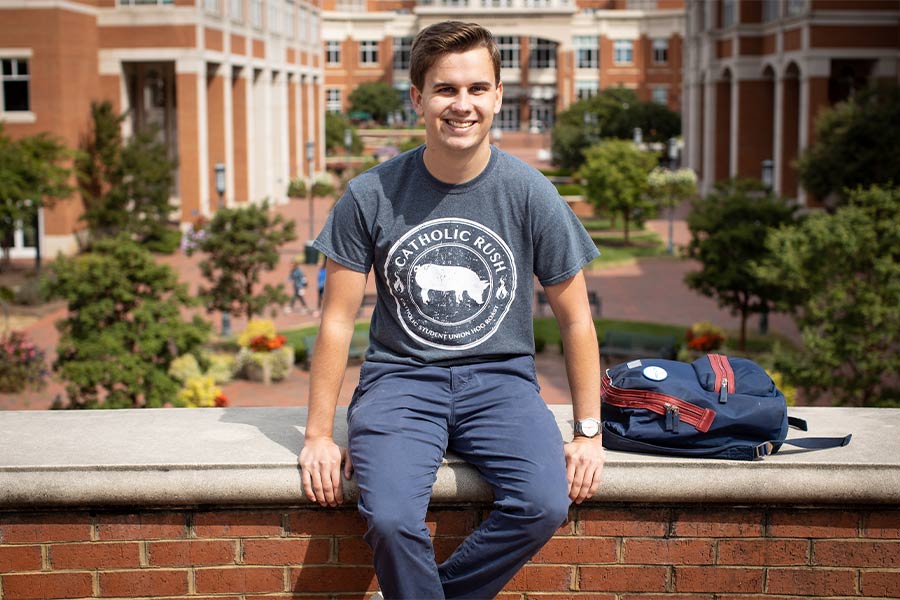
For any organization, its mission statement is core to its identity. And to advance that mission, it needs people who agree with its values and will carry them out.
This is just as true, if not more so, for religious institutions. If religious beliefs are at the center of an organization, then it is addressing some of life’s most important and fundamental questions. And if its mission includes teaching and spreading those beliefs, then it is critical that the organization—rather than the government—can decide who performs this vital function.
This is why our courts have recognized the principle of the ministerial exception.
What is the ministerial exception?
The ministerial exception (sometimes mistakenly called the “ministerial exemption”) allows religious organizations to be able to make employment decisions for ministers without government interference. The ministerial exception most often applies when organizations make decisions in employment matters.
What was the origin of the ministerial exception?
The Supreme Court has long recognized that the First Amendment protects the right of religious institutions “to decide for themselves, free from state interference, matters of church government as well as those of faith and doctrine” (Kedroff v. Saint Nicholas Cathedral, 1952). But the passage of laws prohibiting employment discrimination, even with some exceptions for religious employment, ignited debate over the extent to which religious institutions could control their own employment decisions without government interference.
Lower courts debated this question for decades. The origins of the ministerial exception are seen in cases like McClure v. Salvation Army (1972), in which the U.S. Court of Appeals for the 5th Circuit held that interfering in the “employment relationship existing between … a church and its minister would result in an encroachment by the State into an area of religious freedom which it is forbidden to enter by the principles of the free exercise clause of the First Amendment.”
Finally, in 2012, the Supreme Court handed down a unanimous decision in Hosanna-Tabor Evangelical Lutheran Church and School v. EEOC and upheld the principle of the ministerial exception, recognizing that both the Free Exercise and Establishment Clauses of the First Amendment “bar the government from interfering with the decision of a religious group to fire one of its ministers.”
The Free Exercise Clause “protects a religious group’s right to shape its own faith and mission through its appointments,” while the Establishment Clause “prohibits government involvement in such ecclesiastical decisions.” If the government were to involve itself in the internal governance of a church or religious organization like this, it would “depriv[e] the church of control over the selection of those who will personify its beliefs.”
Who qualifies for the ministerial exception?
Legal scholars have debated the extent to which the ministerial exception applies to employees of religious organizations. In Hosanna-Tabor, the Supreme Court purposefully did not “adopt a rigid formula for deciding when an employee qualifies as a minister.” It did, however, cite four relevant factors for why the employee in question (a teacher named Cheryl Perich) should be considered a minister:
- “Hosanna-Tabor held Perich out as a minister, with a role distinct from that of most of its members.”
- “Perich’s title as a minister reflected a significant degree of religious training followed by a formal process of commissioning.”
- “Perich held herself out as a minister of the Church by accepting the formal call to religious service, according to its terms.”
- “Perich’s job duties reflected a role in conveying the Church’s message and carrying out its mission.”
Unfortunately, some lower courts focused too much on formalities like an employee’s title, so in 2020, the Supreme Court further clarified the ministerial exception in Our Lady of Guadalupe School v. Morrissey-Berru. In a 7-2 opinion, the Court ruled that a religious organization’s ministers (in this case, teachers at a religious school) need not necessarily have a formal title of “minister” to fall under the ministerial exception.
As the Court noted, “Simply giving an employee the title of ‘minister’ is not enough to justify the exception. And by the same token, since many religious traditions do not use the title ‘minister,’ it cannot be a necessary requirement.” Instead, any definition of minister should ultimately be based on “what an employee does.” Thus, the religious function of employees should be the most important consideration as to whether they fall under the ministerial exception.
Why does the ministerial exception matter today?
The ministerial exception is an important principle that protects religious freedom by keeping the internal workings of religious organizations free from government interference. It prevents the government from becoming unnecessarily entangled in or acting as an adjudicator in matters of faith.
Despite the Supreme Court’s rulings in Hosanna-Tabor and Our Lady of Guadalupe, however, religious organizations have still been unjustly sued for employment discrimination. That’s why a May 2024 ruling from the U.S. Court of Appeals for the 4th Circuit in Billard v. Charlotte Catholic High School is so important.
In that case, a former English and drama teacher at Charlotte Catholic High School filed a lawsuit against the school after he was fired because he planned to marry his same-sex partner—conflicting with the school’s Christian beliefs about marriage and sexuality. A federal district court ruled in favor of the teacher, but the 4th Circuit reversed that decision and issued a strong ruling for the ministerial exception.
The appellate court’s opinion recognized that “faith infused CCHS’s classes – and not only the expressly religious ones. Even as a teacher of English and drama, Billard’s duties included conforming his instruction to Christian thought and providing a classroom environment consistent with Catholicism.”
While some have tried to narrow the ministerial exception, the 4th Circuit reaffirmed that an employee’s religious function must be a central consideration—not just whether someone bears the official title of “minister.”
“The ministerial exception protects religious institutions in their dealings with individuals who perform tasks so central to their religious missions – even if the tasks themselves do not advertise their religious nature,” the court ruled.
Conclusion
The Supreme Court has now twice upheld the ministerial exception as a fundamental component of the First Amendment and essential to the free exercise of religion. And the 4th Circuit has reaffirmed that it applies broadly to individuals whose duties are essential to the missions of religious organizations. Everyone benefits when the government is not second-guessing the internal decisions of who a religious organization selects to teach its faith or fulfill its mission.

-150x150.jpg)
-1024x1024.jpg)



